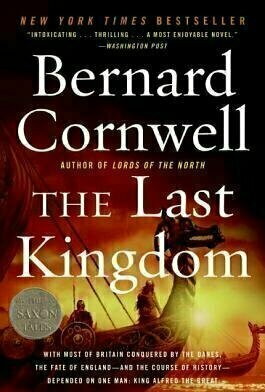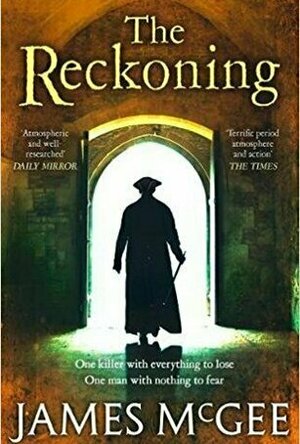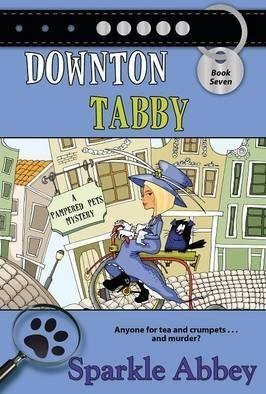
Downton Tabby
Book
Anyone for tea and crumpets . . . and murder? Caro Lamont, amateur sleuth and well-respected...
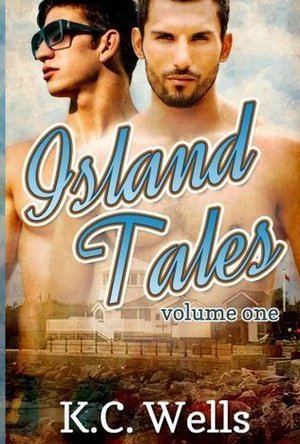
Island Tales Vol. 1 (Island Tales #1-2)
Book
Two tales set on the idyllic Isle of Wight, off the south coast of England. A place of outstanding...
Contemporary MM Romance
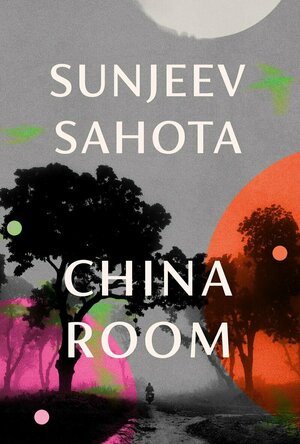
China Room
Book
Longlisted for the 2021 Booker Prize, the breathtaking story of a woman and a man in pursuit of...
Historical fiction Literary fiction India
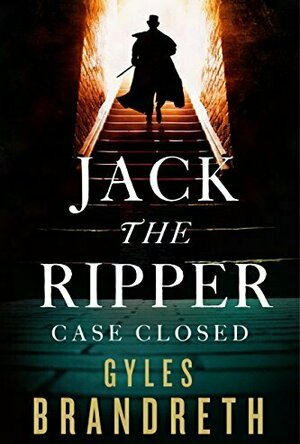
Jack the Ripper: Case Closed
Book
London. 1894. 'I am not a detective, chief constable.' 'No, but you are a poet, a freemason...
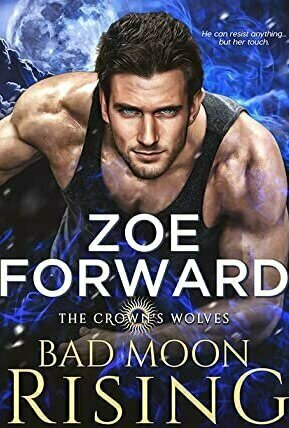
Bad Moon Rising (The Crown's Wolves #1)
Book
They are the ultimate weapon. The ultimate secret. They are the Crown’s wolves. Lycan Roman...
Paranormal Romance Shifters
Lyndsey Gollogly (2893 KP) rated Arnold Ethon and the Lions of Tsavo ( Spirit Beasts 1) in Books
Apr 13, 2023 (Updated Apr 13, 2023)
Kindle
Arnold Ethon and the Lions of Tsavo ( Spirit Beasts 1)
By A.P. Beswick
⭐⭐⭐⭐
With Arnold approaching his 15th birthday, he is becoming increasingly worried that he is not going to have a spirit beast of his own. After a chance encounter gives Arnold and his best friend Otto a chance to join the illustrious Chichen, they jump at the opportunity given to them. The two of them have to learn to hone their connection to the spirit world and they begin intense training to unlock their potential.
When a terrifying attacker appears, distinguishable only by the horrific scars on his face and bent on revenge against the Chichen. Arnold finds not only his life is on the line but those he holds dearest.
The question is, how far will Arnold go to release the beast.
I don’t know what I expected when I started it but by the end I was totally enthralled and really enjoyed it. I love the idea of spirit animals and it being set in England so unique. A nice break from the full adult reads I’ve had lately.
Lyndsey Gollogly (2893 KP) rated The Last Kingdom (The Saxon Stories #1) in Books
Dec 28, 2022
Book
The Last Kingdom ( book 1)
By Bernard Cornwell
⭐️⭐️⭐️⭐️⭐️
The Last Kingdom is set in the England of the ninth and tenth centuries. These were the years when the Danish Vikings had invaded and occupied three of England's four kingdoms, and when King Alfred, his son and grandson fought back and won the freedom of the country again. The story is seen through the eyes of Uhtred, a dispossessed English nobleman. Captured as a child and raised by the Danes, he now finds his allegiances divided. But the one thing he knows is that he wants to recover his father's land, the fort by the wild northern sea that we now know as Bamburgh.
Although this took me a while I absolutely loved it. I didn’t realise till I started reading that it was the inspiration for the tv show. I’m a huge fan of historical fiction and this was the perfect book. I’m looking forward to the rest of the series. I’m extremely grateful for the translation at the front of the book I would never have known those towns and cities in the old language.
David McK (3702 KP) rated The Reckoning (Matthew Hawkwood #6) in Books
Jun 5, 2022
I enjoyed those two enough to later pick up the next three is the series (Rapscallion, Rebellion and The Blooding). Unfortunately, however, I found the series to be drifting further and further from what it originally was, finding the last of those in particular to be quite hard to get through.
So much so, in fact, that I almost completely forgot about the series as a whole, and wasn't even aware of the fact when the latest one (this) was released in 2017.
Roll forward another five years or so, and I'm not sure how, but I came across this one somewhere on Kindle. Thoguht I would give it another chance.
I'm glad to say that this is back to what I remember the earlier book sin the series being like; back set in England, back with Matthew Hawkwood being a Bow Street Runner and back to, well, being an enjoyable read rather than a slog!
Faith restored ...
Merissa (13765 KP) rated The Best New True Crime Stories: Crimes of Passion, Obsession & Revenge in Books
Dec 13, 2021 (Updated Jul 9, 2023)
If you like True Crime then I am sure you will find something to keep your interest. It is clear from the start that a lot of research has gone into these stories, some of which have personal memories from the author. However, some of the stories felt disjointed in the way they were presented, going off on tangents that didn't seem relevant to the story at that point.
Each story features the bare bones of the story; being a collection, there simply isn't room for much more. However, it gives you the story, some build-up, and some information after the crime.
On the whole, this was an enjoyable read by a new-to-me author.
** same worded review will appear elsewhere **
* A copy of this book was provided to me with no requirements for a review. I voluntarily read this book, and the comments here are my honest opinion. *
Merissa
Archaeolibrarian - I Dig Good Books!
Dec 13, 2021
Lyndsey Gollogly (2893 KP) rated The German Nurse in Books
Apr 1, 2024
Book
The German Nurse
By M.J. Hollows
⭐️⭐️⭐️
Her past could kill you.
Guernsey, 1940. As war storms through Europe, Churchill orders the evacuation of all military personnel from the island. Boats ferry soldiers and vulnerable young children to England, leaving their parents and loved ones behind to face the invading German army on their own.
Her love could save you.
One of the few remaining policemen on the island, Jack must protect not only his friends and family, but also the woman he loves: Johanna, a Jewish nurse from Germany, whose secret faith could prove fatal to them both.
Her fate is in your hands.
When the Nazis arrive, everything changes. Jack is forced to come to terms with the pain and loss of a world re-making itself around him. And then a list of Jews on the island is drawn up, and he must make an awful choice: write down Johanna’s name and condemn her, or resist and put his family in immediate danger…
A good read for those who love historical fiction. This was definitely a heartbreaking story.
Set during German occupation of Gernsey.

